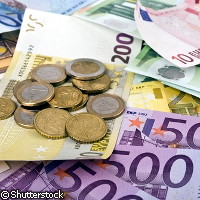EU may up its stake in COST science programme
The EU should add EUR 40 million to its contribution to the international Cooperation in Science and Technology (COST) programme, according to a declaration issued following the COST Ministerial Conference on 15 June in Palma de Majorca (Spain). The meeting, which was organised by the Spanish Presidency of the Council of the European Union, was attended by representatives of COST Member States. If the recommendation of the mid-term evaluation of the COST programme, carried out by a panel of independent experts, and the conference's call for a budget increase is taken up, COST's total budget would rise to EUR 250 million for the duration of the Seventh Framework Programme (FP7). The independent experts also identified different options to be considered when implementing a 'bottom-up networking' instrument for nationally funded research projects in the next programming period. Taking stock of the developments in COST operations in recent years and considering its future role in the European Research Area (ERA), the Ministerial Conference concluded that 'COST has proved to be a flexible, fast, integrative, effective and efficient tool.' It is thus 'contributing to overcome the fragmentation of research in the ERA and also contributing broadly to Europe's competitiveness and socioeconomic development'. The Conference also recognised the important role COST has to play in European science coordination. Due to its special position, 'COST must continue and should be encouraged to develop as a European initiative and a mechanism of prime importance for the implementation and strengthening of the ERA'. 'We may conclude that it is certainly very satisfactory to note how COST has improved since 2003. Somebody called this six-year period the 'renaissance' of COST following the rather difficult times of the immediately previous years,' said the Spanish Secretary of State for Research, Felipe Pétriz. 'The profound restructuring of the COST scientific domains has proved to be a major milestone for COST,' he underlined. 'It has launched COST into the future, facilitating the development of new ideas in the most promising fields of science. The restructuring was not obtained by simply reducing the number of COST domains, but by starting from a 'tabula rasa' and by establishing a completely new structure [...] laying down the very basis for COST's scientific strategy.' Mr Pétriz added that - if the programme continued to attract the same amount of interest - 'COST should not have any problem for its future' and it would remain 'an extremely efficient mechanism [...] to decrease the fragmentation of investments in research in Europe coordinating bottom-up initiatives and to open the ERA to a global collaboration'. COST is a collaboration of a total of 36 countries, including EU Member States, 8 Associated Countries (Bosnia and Herzegovina, Croatia, the Former Yugoslav Republic of Macedonia, Iceland, Norway, Switzerland, Serbia and Turkey) and one cooperating state (Israel). It was set up in 1971 in order to expand and coordinate nationally funded research on a European level. Currently, close to 300 projects in 9 key domains (biomedicine and molecular biosciences; food and agriculture; forests, their products and services; materials, physical and nanosciences; chemistry and molecular sciences and technologies; Earth system science and environmental management; information and communication technologies; transport and urban development; individuals, societies, cultures and health) are being carried out with support from COST.
Countries
Spain



